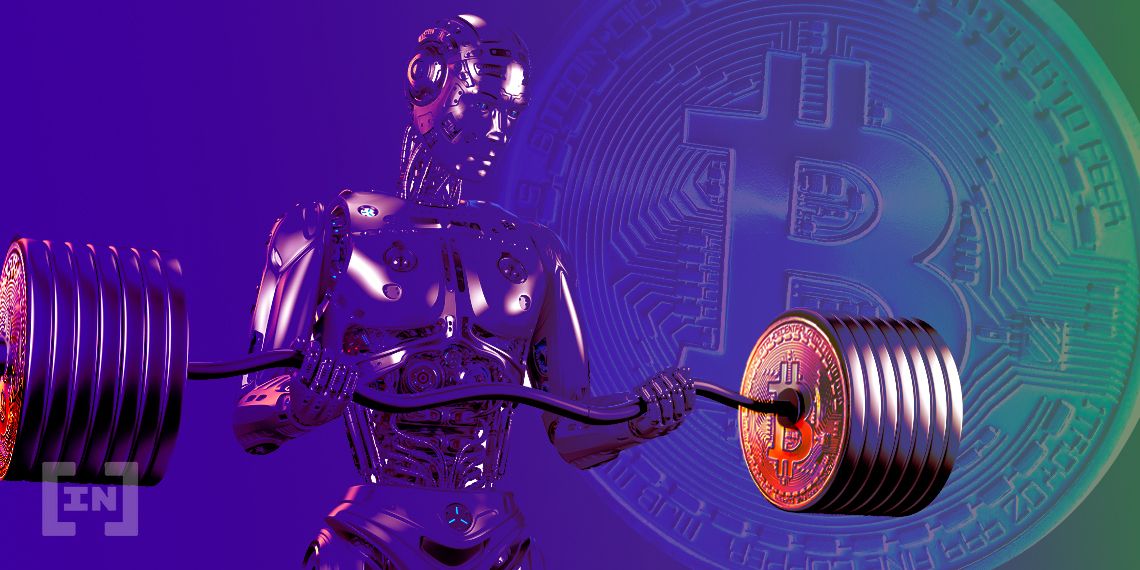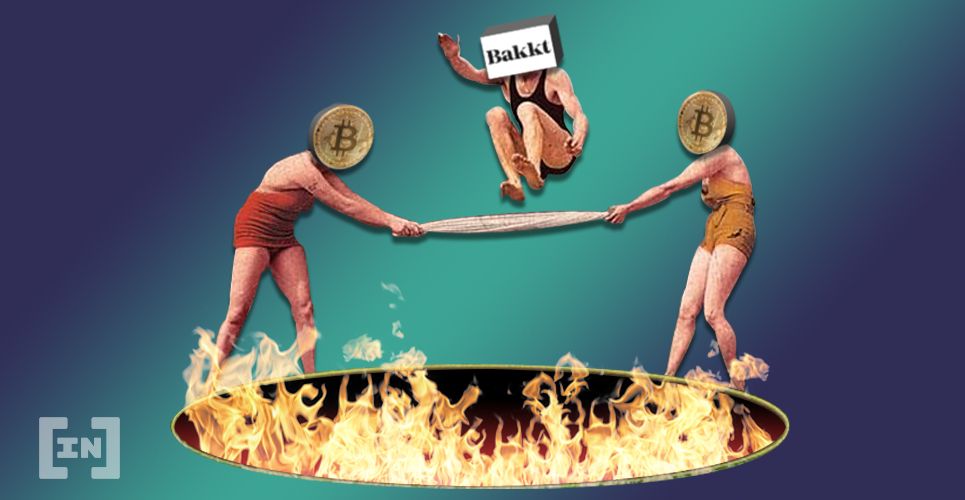For years now, trading bitcoin has been a major solution for those looking to make a profit without the traditional rules. It is steadily disrupting traditional ways of making money.
In 2017, bitcoin remarkably recorded a game-changing experience when it moved from lows of $5,000 to about $19,000. At this point, many real-world projects, including futures, were conceptualized into bitcoin trading. Bitcoin futures was introduced into the crypto world in 2017 and has since been offering people new ways to invest in crypto.
However, what are bitcoin futures? To understand what this means, let’s explore its investment field with a fine-tooth comb.
In this guide:
- What are futures?
- How do futures contracts work?
- What are bitcoin futures?
- Types of bitcoin Futures
- How do bitcoin futures work?
- Pros and cons of bitcoin futures
- Relationship between bitcoin futures and bitcoin price
- Where can you trade bitcoin futures?
- Is bitcoin futures a good move for you?
- Frequently asked questions
What are futures?

Futures is a standard contract between two parties to buy or sell a specific asset at a predetermined date in the future, at a particular time. Typically, futures contracts are traded on a futures exchange.
The futures agreement includes the underlying asset’s quality, quantity, and price. There are numerous reasons for making a futures contract. First, since it is a trade agreed to be carried out in the future at a particular time, and for a specific price, the buyer of the underlying asset is protected against the asset’s price movements in the market. This may result in a profit or, sometimes, a loss to the contract holder as there is a commitment to buy or sell at the specified price.
Most contracts in the finance space give the ‘right’ to do something to the contract holder. However, futures contracts introduce a different concept by providing the ‘right’ and ‘obligation’ to the contract holders (both parties) for performing the futures contract details. Usually, some futures contracts require physical delivery of assets involved, while others are done in cash.
How does it work, though?
How do futures contracts work?
Future contracts involve two parties, buyers and sellers; it allows them to lock in cost and have the asset traded before it is even harvested.
Several assets, for example, commodities, are used as futures contracts in futures exchanges. For a better understanding, say there is a farmer who would like to sell a large volume of corn at the next harvest. Although the corn is not produced yet, the farmer wants to ensure that a proper price is paid for the corn in the future. Then there is a buyer who is looking for corn from the next crop, who will be willing to pay the current market price for it or something similar. In this case, the seller and the buyer can form a futures contract at a specific price. This will protect both the seller and the buyer against volatile price movements.
Future contracts often feature two leading traders, usually called hedgers and speculators. Hedgers are interested in the underlying asset, and they seek to hedge out the risk of price changes, while speculators do not have any practical use of the assets pegged to the futures contract. Instead, these people speculate and buy futures to sell them later with profit to interested parties.
In a futures contract, you can enter a long or short position.
Long is when a party promises to buy the asset at a specific date and a certain time, while short is when a party aims to sell the asset at a specific date and price.
What are bitcoin futures?

Following the concept of trading regular assets like commodities and stocks as futures contracts, you can also trade bitcoin futures.
In simple words, bitcoin futures involve two parties and a contract to buy or sell bitcoin at a specific future price and date. In late 2017, the CME Group introduced bitcoin futures contracts. The contracts traded on the Globex electronic trading platform are settled in cash. Bitcoin futures are based on the CME CF Bitcoin Reference Rate.
Trading bitcoin futures don’t involve actual bitcoin. Since the futures are agreements that settle financially in cash, no bitcoin gets involved. Just as in other futures contracts, you predict the price of bitcoin and not buy or sell the underlying cryptocurrency asset itself. However, you can take a long position if you anticipate an increase in the bitcoin price; or if you are holding bitcoin, take a short position to reduce the risk of probable losses.
It is essential to know that the price of a bitcoin futures contract is broadly proportional to the price of bitcoin. So, trading bitcoin futures is an alternative to spot trading, which involves the actual buying or selling of underlying crypto.
Spot trading only offers you fundamental trade orders like buying low and selling high, and you tend to make a profit during the market pump. On the other hand, trading bitcoin futures offers many benefits, including trading and accessing leverage during bull and bear markets.
Types of bitcoin Futures
There are several types of bitcoin futures markets today, and different platforms offer different derivatives trading. The most common products are Standard Futures contracts and Perpetual swap contracts. These two are the popular derivatives usually traded in the investment space today. However, these two have distinct features, and you must clearly understand them before putting your money on them.
Futures contracts vs. perpetual swap contracts
Conceptually highlighting the essential differences between bitcoin perpetual swaps and bitcoin futures contracts, we would explain it this way:
Bitcoin perpetual swaps does not have an expiry date set for the contract. It is basically infinite; there’s no end. On the other hand, bitcoin futures contracts have an agreed expiry date. So, there’s a period to honor the agreement. This typically takes up to a month or more.
Since perpetual swaps don’t have expiration dates, exchanges use a price syncing system called the funding rate mechanism. This mechanism stabilizes the short and long positions of perpetual swaps by either adding or subtracting trades. It is more like a fee that helps maintain the short and long positions of the perpetual contracts.
Another notable feature of perpetual swaps is that they typically keep a track record of the spot market, which might be attractive to crypto traders. However, volatility is the major risk attached to this. As a result, the price of a perpetual swaps contract tends to move away from the spot price during market volatility.
Similar to bitcoin futures, in a perpetual swap, there’s a constant elimination of re-establishing long and short positions. This process ensures the perpetual price converges with the spot price by an exchange of coin swaps between traders in long and short positions. There is no need to maintain a price sync with bitcoin futures, since the terms of the contract and the asset involved automatically converge as the expiration date appears.
How do bitcoin futures work?

The working principles in bitcoin futures are the same as those for a typical futures contract. In addition, there are centralized exchanges like Binance that allow massive risk-taking.
To better understand this, let’s say we purchase bitcoin at a $40.000 futures contract, to be settled two months out.
Our futures contract obligates us to purchase $40.000 in bitcoin in two months. If the price is then trading at $50.000, we have made a $10.000 profit per share. But if it has dropped to $30.000 by that time, we must still purchase it at $40.000, effectively losing $10.000 per position.
If we believe the price will drop, we could sell at a $40.000 futures contract under the same conditions. This means that if bitcoin has fallen to $30.000 by the expiry date, we can still sell for $40.000, thus making a $10.000 profit. The reverse applies: bitcoin should be above $40.000 at expiry.
To accept this obligation, we put up some money, which is called a “margin.” Margin is the least collateral you must have in your account to execute trades. The more money you put into the trade, the higher the margin an exchange would need to complete a trade.
Usually, the margin is between 5% and 15% of the value of the underlying asset, so let’s take 5%, for example. We buy a futures contract for $1000 x $40.000. The value of these positions would be $40 million, but we only put up 5% of the contract.
Leverage
The higher the leverage, the more exposed you’re to high profit or loss. Furthermore, the amount you can trade depends on the margin amount available to you. Binance, for example, offers leverage of about 125 times the trading amount. Leverage determines the level of volatility for your trade.
Pros and cons of bitcoin futures

Trading bitcoin futures comes with a lot of advantages and disadvantages. For most experienced crypto traders, it has been a major source of earning crypto income, while there are a few risks attached to it.
Pros
Regulation
One major edge benefit of bitcoin is that it is regulated by the Commodity Futures Trading Commission (CFTC). This might be a turn-off for those who invest in crypto to boycott the government’s rules; however, it is a huge plus for bitcoin enthusiasts. The good news is that CFTC regulation isn’t as strict as regulation of other investments like stocks and bonds.
These regulations introduce a guide that controls the contract and allows both speculators and investors in the futures contracts to comply. The rules are crystal clear, and the consequences of breaking the rules are well presented in advance.
Flexibility
Another massive benefit of trading bitcoin futures is that you’re actually not trading bitcoin itself. Thus, you do not need to have a wallet, or you needn’t provide any physical or underlying asset to exchange bitcoin. This completely erases the risk of holding bitcoin that increases and reduces in price at any given time.
Trading with leveraged positions increase profits
Most platforms offering bitcoin futures provide what is called position limits and leverage to increase the chances of you making a profit.
For example, CME offers up to 2,000 front-month futures contracts and about 5,000 contracts across different dates. Binance, the largest cryptocurrency exchange by trading volume, has an adjustable position limit toggle feature that allows you to manually reconfigure position limits based on past trading history and margin amounts. The platform also offers up to 125x trading leverage.
Cons
Highly technical
Trading bitcoin futures requires a substantial level of technical skills. You need to understand how the crypto market works, study several market predictions, and have a solid trading plan. Essentially, bitcoin futures are speculative, but it is possible to utilize helpful market info from professionals. Doing this, however, is not exactly easy, as an average crypto trader arguably finds this difficult.
High investor requirements
As much as bitcoin futures ease the process of making money on the market, it’s not so accessible to everyone. While you can start with a low amount on centralized exchanges like Binance, it is often expensive on CBOE and CME. In addition, it requires about 50% marginal security, which is quite expensive for regular traders, especially when compared with a 10% margin for other assets.
These requirements discourage many crypto investors from participating, as CME and CBOE only offer bitcoin futures trading for qualified investors.
Relationship between bitcoin futures and bitcoin price
Ultimately, bitcoin futures contracts should track the price of bitcoin. However, the price might vary throughout its settlement date. As a result, bitcoin futures contracts can increase or drop bitcoin’s current price (spot price).
This is usually caused by rapid fluctuations in volatility. For example, a big player such as Tesla is investing more bitcoin, or a major country (China) is banning crypto. Supply and demand issues for bitcoin price can lead to spreads widening or shrinking in the bitcoin futures contracts.
Other price changes include what’s known as “gaps.” These are periods where no trading is happening — so there’s no pricing data for those time gaps. They are only on traditional platforms like CME because they have certain trading hours, unlike the broader crypto market that trades 24/7.
Where can you trade bitcoin futures?

Whether you’re looking for a seamless, regulated, or centralized exchange, many platforms offer access to trade bitcoin futures.
CBOE: The Cboe Global Markets (CBOE) was the first U.S.-based exchange to offer bitcoin futures contracts. It started offering the product on Dec. 10, 2017. CME followed a week later.
CME: This is another platform that offers access to trade bitcoin futures. It implements the Bitcoin Reference Rate, the volume-weighted average price for bitcoin sourced from multiple exchanges, and is usually calculated daily between 3 pm and 4 pm. CME’s bitcoin futures contract is traded on Sunday to Friday, from 5 pm to 4 pm Central Time, and expires on the last Friday of each month.
OXEx’s: This is one of the most popular platforms offering seamless access to trade futures.
Binance: Binance, the biggest crypto exchange, also allows traders to trade futures offering many attractive features, including leverage of 125x the Margin.
Bybit: Bybit offers margin and futures trading at up to 100x leverage. Its users can get 100x leverage on bitcoin and 50x leverage on other crypto assets.
FTX: According to its website, FTX futures have careful, measured margin calls to avoid significant price dislocations.
Other platforms include Kraken, eToro, and many more.
Is bitcoin futures a good move for you?
There are several ways to begin investing in bitcoin, and there is absolutely no perfect way to invest in it today. Bitcoin futures offer a great way to make money. But, at the same time, you can lose money trading it. So, you just have to understand the benefits and risks and choose the best strategy for you if you really want to explore this space.
Frequently asked questions
How does a bitcoin futures contract work?
What does it mean to buy a bitcoin futures contract?
What is the difference between bitcoin and bitcoin futures?
How do bitcoin futures make money?
What happens when bitcoin futures expire?
Are there any bitcoin ETFs?
What is ProShares Bitcoin ETF?
What is a good ETF for bitcoin?
Trusted
Disclaimer
In line with the Trust Project guidelines, the educational content on this website is offered in good faith and for general information purposes only. BeInCrypto prioritizes providing high-quality information, taking the time to research and create informative content for readers. While partners may reward the company with commissions for placements in articles, these commissions do not influence the unbiased, honest, and helpful content creation process. Any action taken by the reader based on this information is strictly at their own risk. Please note that our Terms and Conditions, Privacy Policy, and Disclaimers have been updated.



